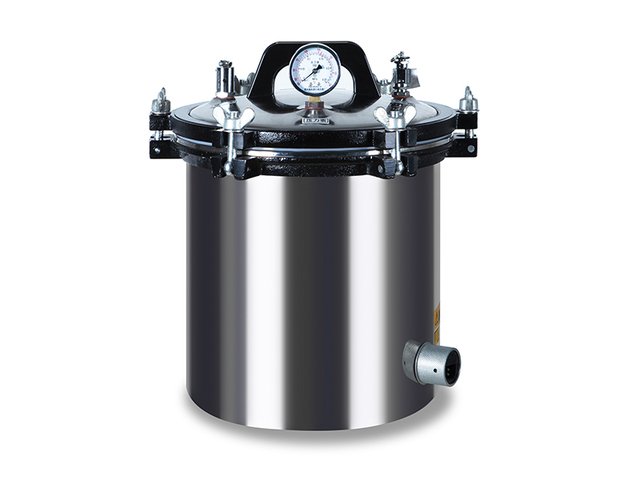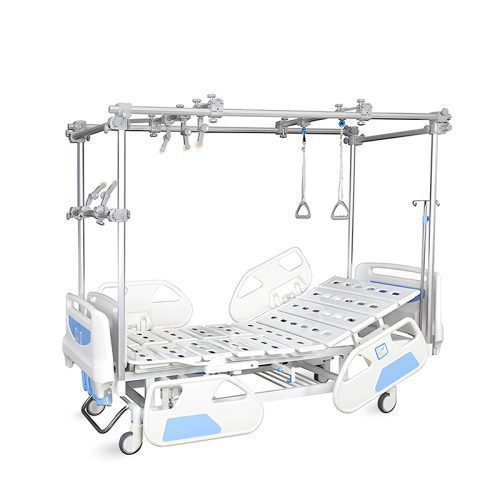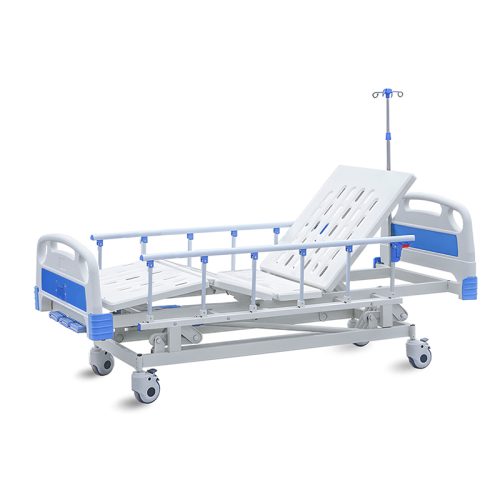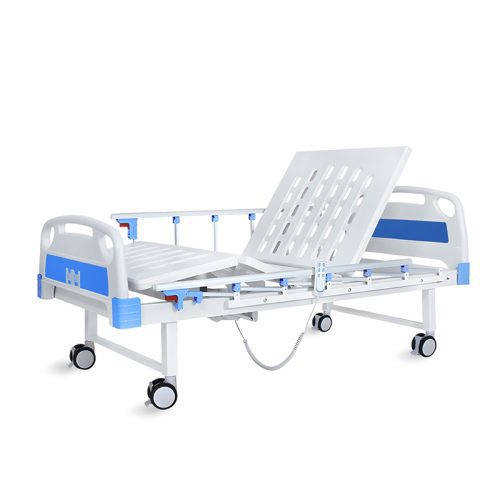
- Autoclave
Avantages et utilisations des stérilisateurs autoclaves dans les laboratoires autoclave de laboratoire
- Par kelingmedical
#### **Pourquoi les stérilisateurs autoclaves sont essentiels dans les laboratoires**
1. **Assurer la stérilité**
Les laboratoires manipulent des substances sensibles et dangereuses, notamment des échantillons biologiques et des mélanges chimiques. Les stérilisateurs de laboratoire protègent les résultats et la santé en éliminant les micro-organismes des outils, des instruments et des surfaces.
2. **Versatilité entre les applications**
Les autoclaves sont utilisés à diverses fins dans les laboratoires :
Le processus de stérilisation en autoclave s'applique à la verrerie de laboratoire, y compris les tubes à essai et les béchers.
- Décontamination des déchets biologiques.
- Préparation de milieux stériles pour les expériences.
Leur capacité à remplir de multiples fonctions en fait un équipement essentiel dans tout laboratoire.
3. **Conformité aux normes de sécurité**
Les autorités réglementaires exigent des laboratoires qu'ils utilisent des stérilisateurs pour respecter les règles de sécurité et de propreté. Les laboratoires de recherche, les laboratoires médicaux et les laboratoires pharmaceutiques doivent éviter la contamination, car elle peut entraîner de graves problèmes.
—
#### **Caractéristiques principales des autoclaves de laboratoire**
1. **Contrôle précis de la température et de la pression**
Les autoclaves pour laboratoires sont dotés de dispositifs de contrôle précis de la température et de la pression afin de maintenir les cycles de stérilisation requis. Les températures typiques de stérilisation se situent entre 121°C et 134°C, tandis que les niveaux de pression se situent généralement entre 15 et 30 PSI.
2. **Tailles et capacités adaptables**
Les autoclaves de laboratoire vont des modèles compacts de table aux grands modèles autonomes qui répondent aux diverses exigences des laboratoires. Les autoclaves Equipo s'adaptent aux tâches de stérilisation de gros volumes ou à des types d'instruments particuliers.
3. **Caractéristiques de sécurité avancées**
Les **stérilisateurs médicaux** et les autoclaves de laboratoire modernes sont souvent dotés de dispositifs de sécurité intégrés, tels que
- Mécanismes de verrouillage automatique.
- Vannes de décompression.
- Alertes de fin de cycle.
Les dispositifs de sécurité intégrés dans les autoclaves servent à protéger à la fois l'opérateur et l'appareil.
—
#### **Applications des stérilisateurs à autoclave dans les laboratoires**
1. **Stérilisation du matériel de laboratoire**
Un **stérilisateur de laboratoire** est utilisé pour décontaminer un large éventail d'équipements, notamment
- Instruments chirurgicaux.
- Récipients en verre et en plastique.
- Pipettes et boîtes de Petri.
2. **Élimination des déchets biologiques**
Les laboratoires de microbiologie et de biotechnologie utilisent des stérilisateurs autoclaves pour désinfecter les déchets, notamment les plaques de culture et les sacs de sécurité biologique, ainsi que d'autres objets contaminés.
3. **Préparation des milieux stériles**
Les autoclaves sont des équipements standard dans les laboratoires pour stériliser les milieux liquides tels que les bouillons nutritifs et la gélose afin d'éviter que la contamination microbienne ne perturbe les expériences.
4. **Soutenir la recherche médicale**
Les laboratoires de recherche liés aux établissements de soins de santé utilisent régulièrement des autoclaves. Les autoclaves contribuent à maintenir la stérilité des échantillons et des outils expérimentaux, ce qui permet à la science médicale de progresser.
—
#### **Pourquoi choisir un autoclave pour un usage en laboratoire ?
1. **Efficacité**
Les autoclaves de laboratoire haute performance accélèrent les processus de stérilisation afin de faire gagner du temps aux laboratoires dont la charge de travail est importante.
2. **Fiabilité**
Les autoclaves conçus pour être utilisés en laboratoire conservent des performances constantes grâce à leur capacité à supporter un usage fréquent.
3. **Conception écologique**
Les **stérilisateurs de laboratoire** contemporains consomment moins d'eau et d'énergie, ce qui en fait un choix écologiquement durable.
—
#### **Comment choisir le bon autoclave de laboratoire**
1. **Déterminer les besoins de votre laboratoire**
Évaluez les matériaux à stériliser en fonction des dimensions de votre laboratoire et des exigences de travail habituelles. Les besoins de base des laboratoires peuvent être satisfaits par un petit autoclave de laboratoire, mais les laboratoires plus importants auront besoin d'autoclaves equipos de grande capacité.
2. **Vérification de la conformité**
Choisissez un autoclave qui répond aux normes de stérilisation locales et internationales telles que celles de l'ISO et de la FDA.
3. **Prioriser la maintenance et l'assistance**
Choisissez un fournisseur qui propose des services de maintenance et d'assistance étendus. L'entretien régulier permet à votre autoclave de fonctionner de manière optimale.
—
#### **Conclusion**
L'autoclave de laboratoire ne se limite pas à la stérilisation, il constitue la base d'un fonctionnement sûr et efficace du laboratoire. Les stérilisateurs autoclaves offrent des processus de stérilisation fiables et conformes qui garantissent la précision expérimentale et la protection du personnel. Tous les laboratoires, des petites installations de recherche aux grands centres médicaux, ont besoin de stérilisateurs de laboratoire de haute qualité pour atteindre des normes d'hygiène et de précision optimales.
—
### **FAQ**
Comment un autoclave de laboratoire nettoie-t-il et prépare-t-il les objets à usage scientifique ?
La vapeur à haute pression d'un autoclave stérilise les instruments de laboratoire, la verrerie et les déchets biologiques afin de maintenir un environnement exempt de toute contamination.
Quel est le processus opérationnel d'un autoclave dans des conditions de laboratoire ?
Le processus de stérilisation dans les autoclaves consiste à chauffer de l'eau pour produire de la vapeur qui est ensuite pressurisée jusqu'à ce qu'elle atteigne les températures nécessaires à la stérilisation. Cette procédure permet de détruire tous les micro-organismes, y compris les bactéries et les virus, ce qui permet de réutiliser les articles en toute sécurité.
Existe-t-il des instruments de laboratoire qui ne peuvent pas être stérilisés à l'aide d'un autoclave ?
Non, tous les instruments de laboratoire ne sont pas adaptés à l'autoclave. Les plastiques et les appareils électroniques qui réagissent mal à la chaleur et à l'humidité doivent utiliser d'autres techniques de stérilisation.
Quelle est la durée d'une stérilisation standard dans un autoclave de laboratoire ?
La durée de la stérilisation varie en fonction de la quantité et du type de matériau de la charge. Les cycles d'autoclave typiques durent entre 15 et 30 minutes tout en maintenant des températures de 121°C à 134°C.
Quelles procédures d'entretien dois-je suivre pour mon autoclave de laboratoire ?
L'entretien nécessite un nettoyage de routine de la chambre ainsi qu'une inspection des joints et des vannes pour vérifier l'usure et un étalonnage périodique des réglages de température et de pression si nécessaire. Veillez à consulter les directives du fabricant pour comprendre les exigences spécifiques en matière d'entretien.
📧 Courriel : inquiry@shkeling.com
🌐 Site web : www.shkeling.com.cn
Nous nous réjouissons de construire avec vous un partenariat fructueux !






